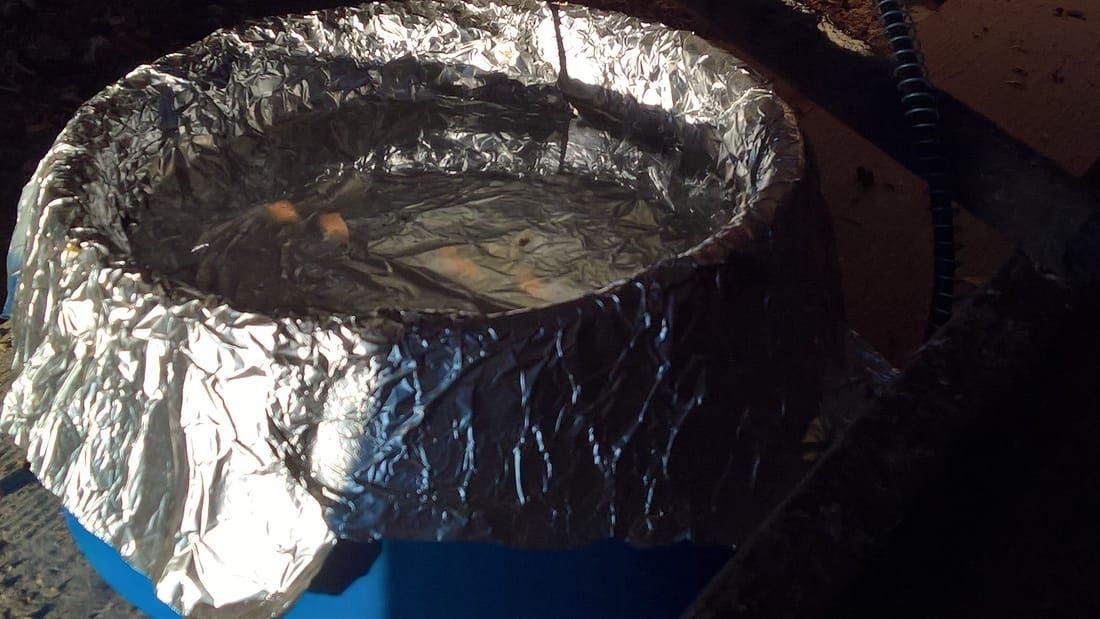Solutions for Frozen Chicken Water
Lack of water can also cause problems with digestion and a chicken’s ability to metabolize food. Chickens need water to help soften and dissolve their feed and to keep their food moving smoothly through their crop.
Constant access to fresh, liquid water is especially important because chickens don’t drink large amounts of water at one time. Instead they intake small amounts frequently. A water bowl that keeps freezing does not support a chickens drinking habits.
There are a few choices available when determining how to best prevent water from freezing.
- One is to replace the water on a regular basis. This may be a viable option if your cold weather is only for a day or two and the temperatures drop just below freezing for short periods of time. For longer cold spells, this is an exhausting solution that is not necessarily viable.
- Another is to use an electrically heated chicken or pet waterer. These are thermostatically controlled to keep ice from forming.
- Thirdly, if you have a safe place to install a heated lamp near the water, this combined with the body heat of the chickens will frequently prevent the water from freezing. You may be able to use the same lamp set-up as you used for your chick brooder, but be sure to mount and secure the light so the chickens cannot gain access to the light and injure themselves. Even if you already have a heat lamp in the coop, keep in mind that the warmth may not be evenly distributed and you need to ensure the light is close enough to the water to effectively keep the water thawed.
- Another option is food grade Glycerine, also known as Glycerol or Glycerin (simply different names for the same thing) as found in the home baking section of your supermarket or on-line can be added to water to stop the water from freezing. Experiment with the quantity – A few drops usually protects a large sized wateringcontainer below freezing but if the temperature falls further, you may need to add an extra drop or two.
Pecking Order Determines a Chickens Access to Water
New chicken owners may not realize that basic flock psychology can hinder water access. The Pecking Order in a flock dictates that there is an alpha on top, an omega on the bottom and everyone else is in between.
This pecking order is initially seen with baby chicks. If there is a weak chick, the rest of the flock will eliminate it from the gene pool. This is also done with adult birds, even a healthy, egg-producing hen. One way they do this is by disallowing the hen access to water. They will do the same with access to food. You can avoid this by providing more than one watering station and feeding locations. This simple step will help keep the entire flock healthy. Additionally, make sure your coop is large enough to accommodate your flock. Crowding the flock into too small of a space, as can sometimes happen when birds are forced to spend more time indoors in colder weather, can result in abnormal and aggressive behaviors.
Keep the Coop Dry
While keeping water bowls filled with non-frozen water is critical, so is keeping the coop dry. Wet living conditions for chickens can foster cold and disease. Unfortunately, the disadvantage of some electric water dishes is that birds may be able to easily tip them over. Be sure to place the waterers on a solid surface and make a cradle of scrap wood to keep the bowl in place. Another trick to quick clean-up is to line the waterers with aluminum foil. If the birds do make a mess in the water, save time and effort scrubbing the waterer by simply removing the water and then the foil. Replace with new foil and fresh water.
Your specific winter conditions will dictate which solutions work best to help keep your chickens hydrated. As always, stay diligent about flock care and you’ll keep them happy and healthy until warmer weather arrives.


 RSS Feed
RSS Feed
